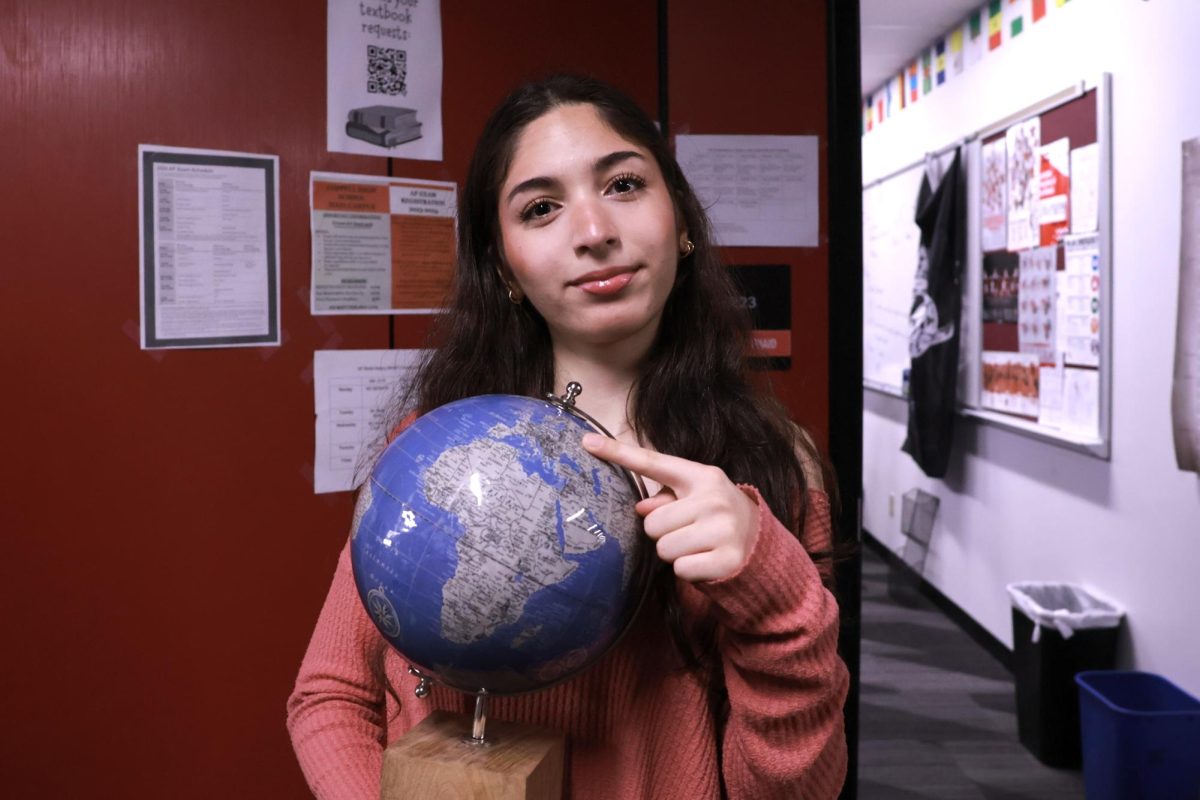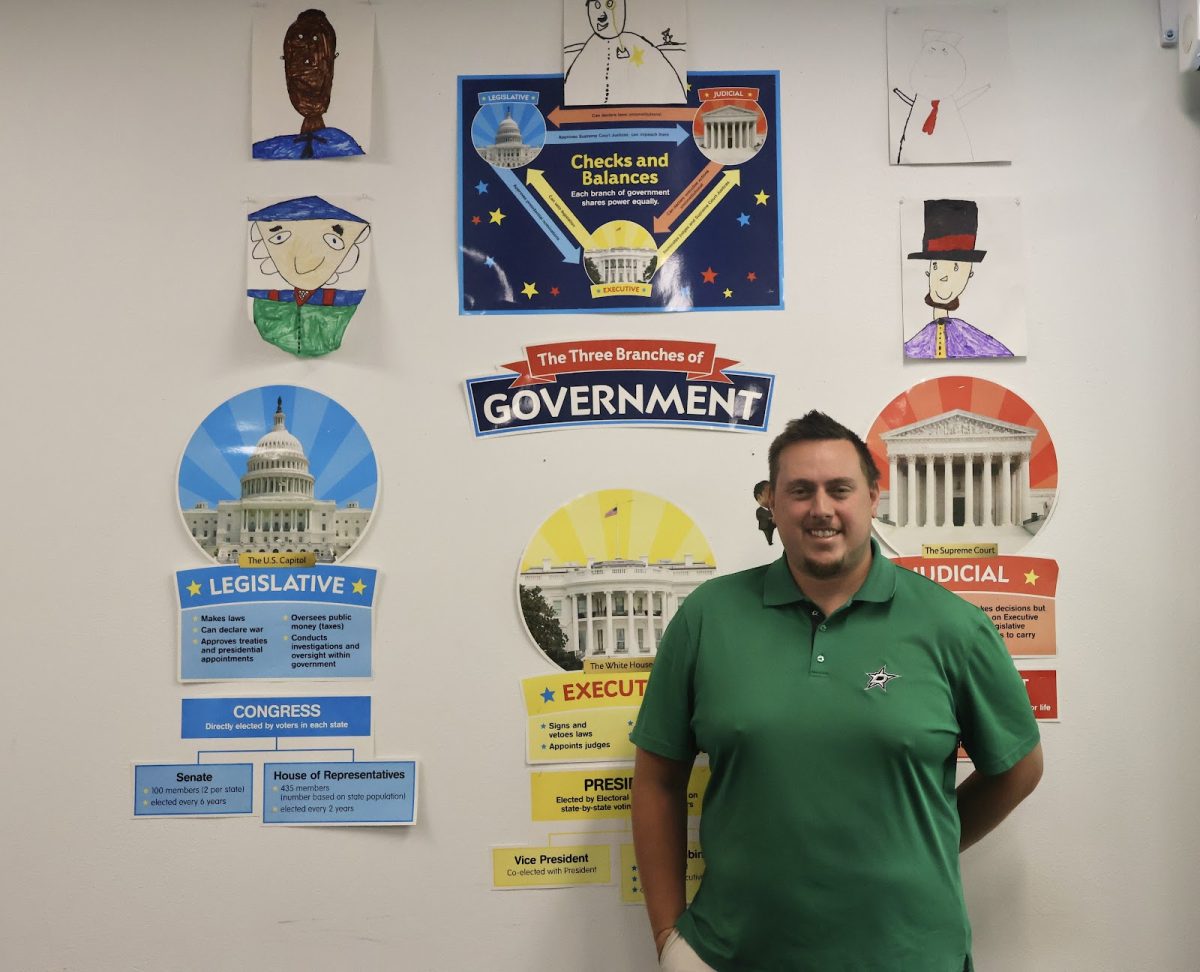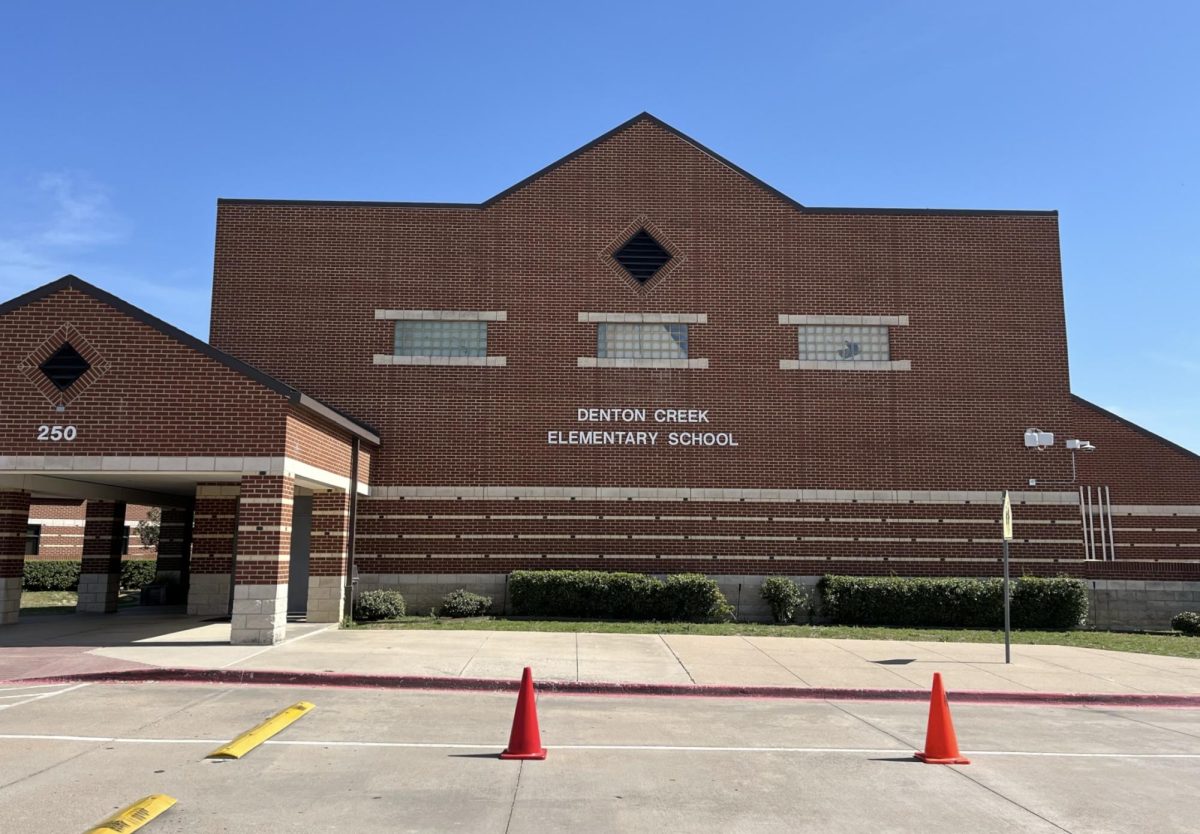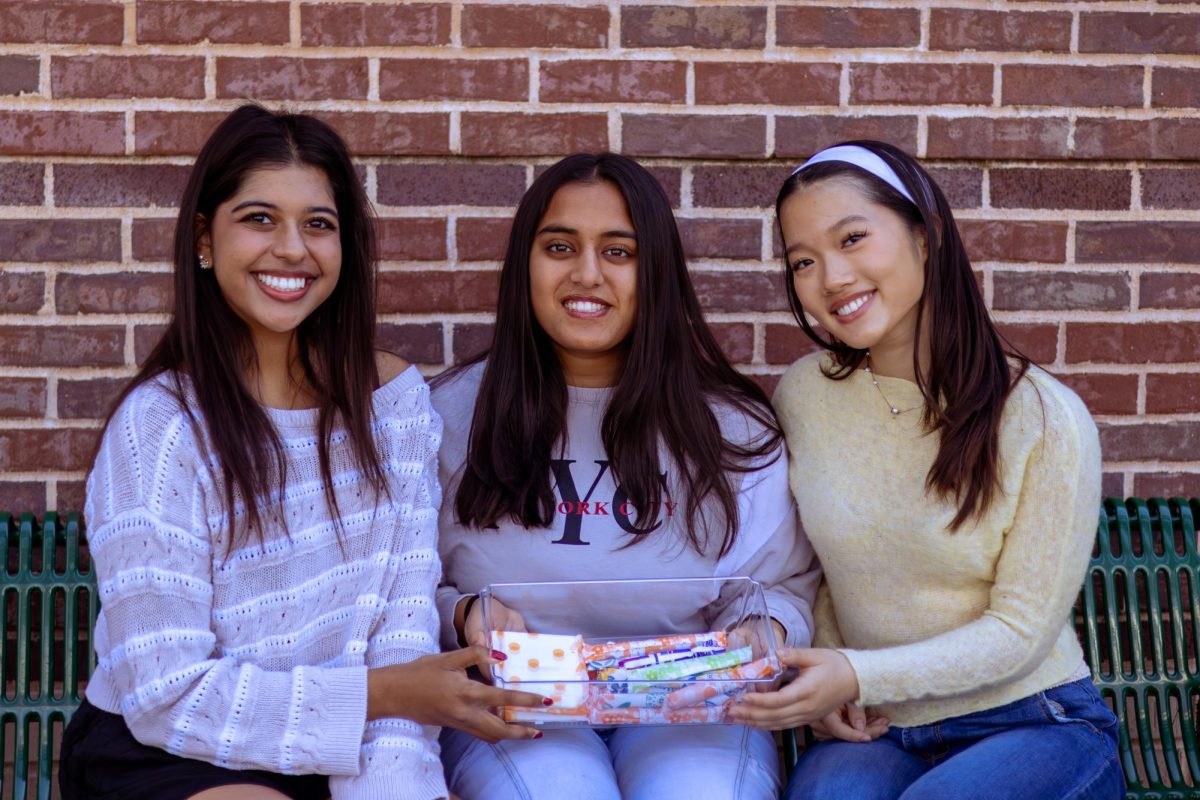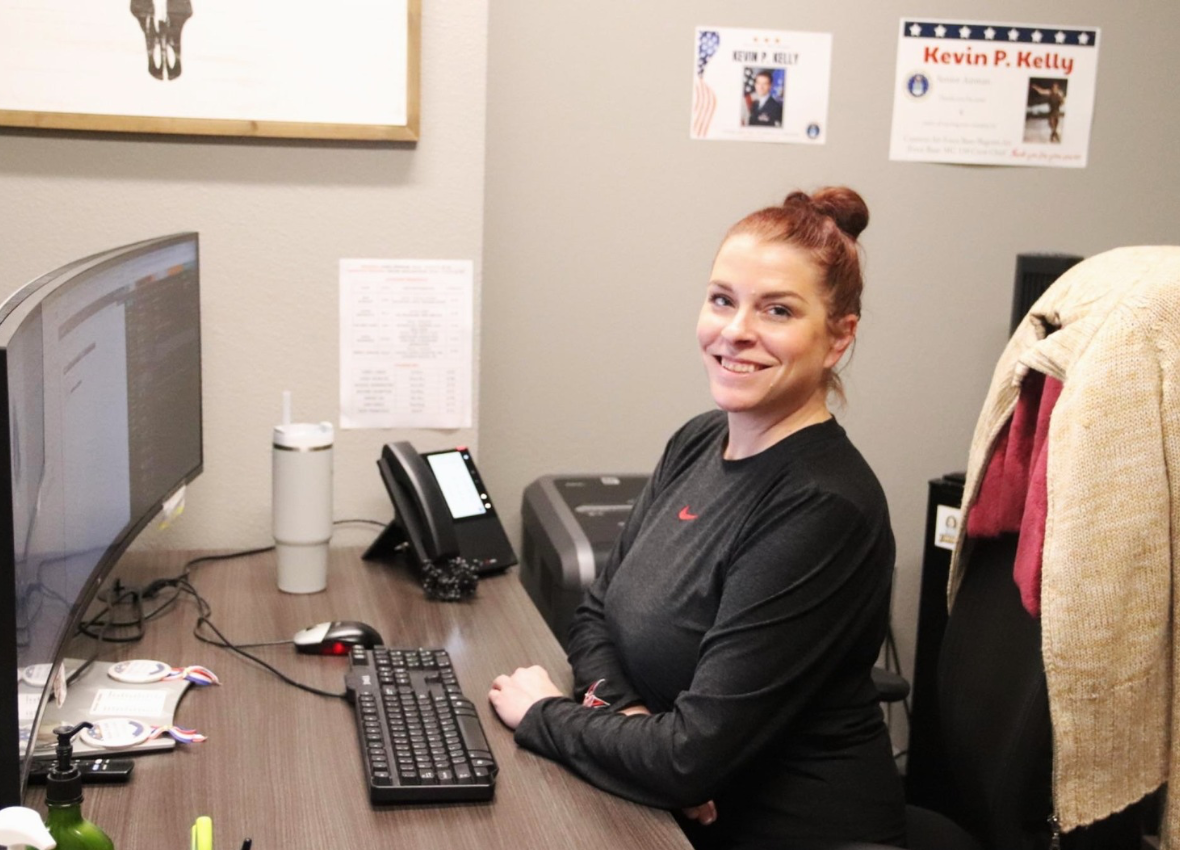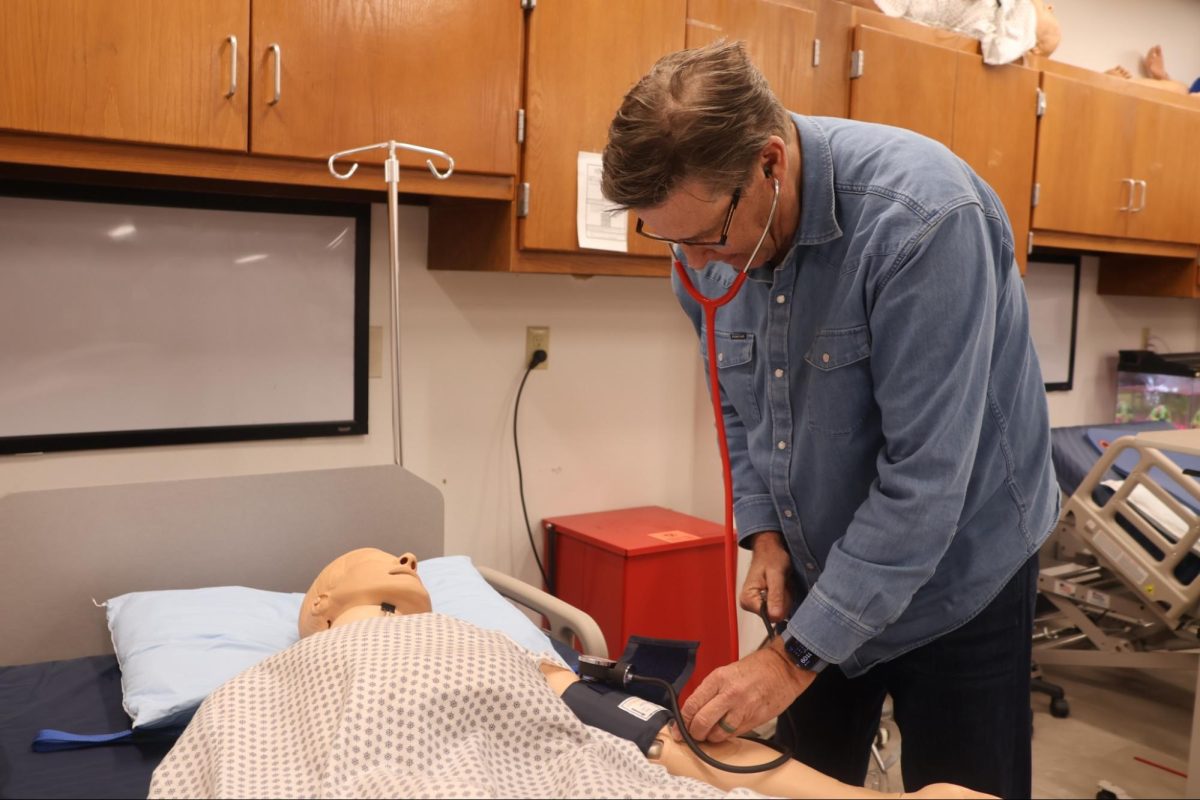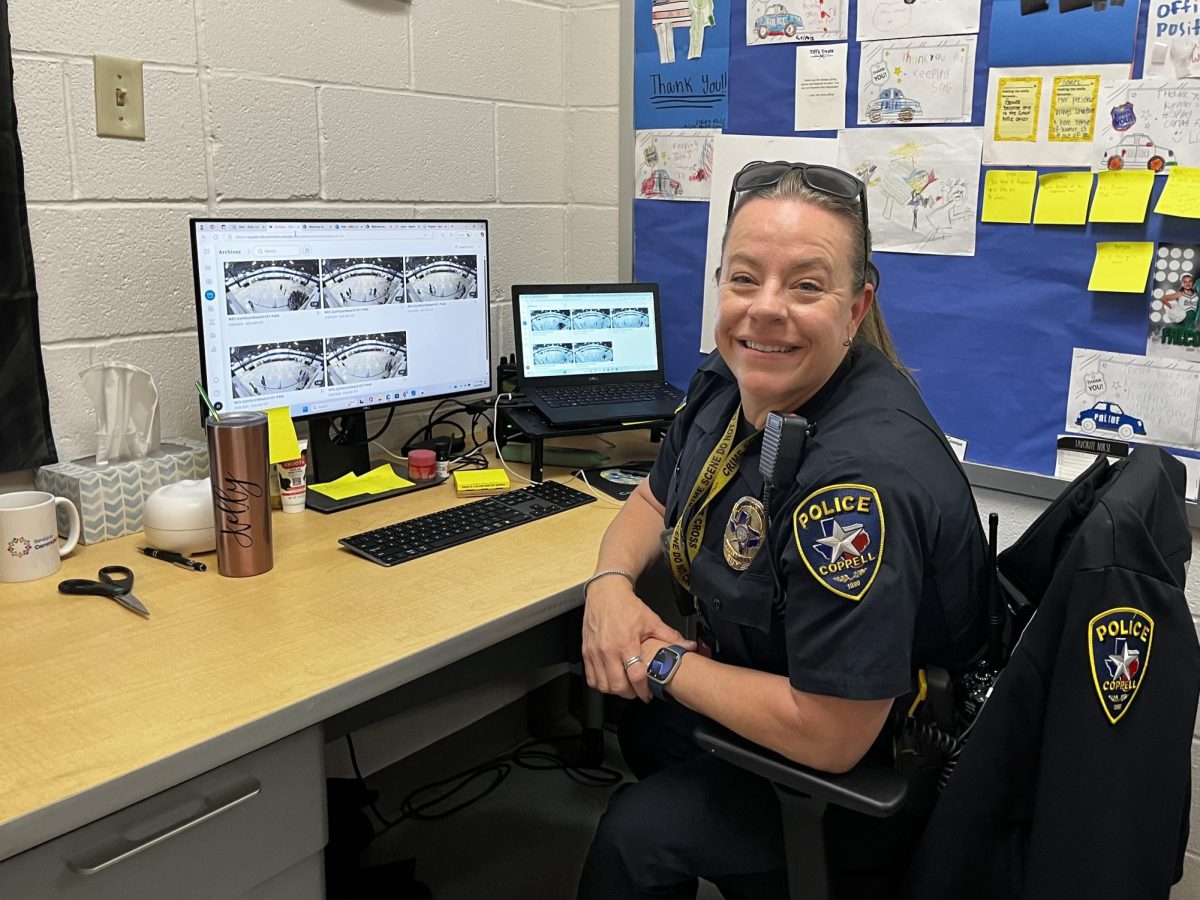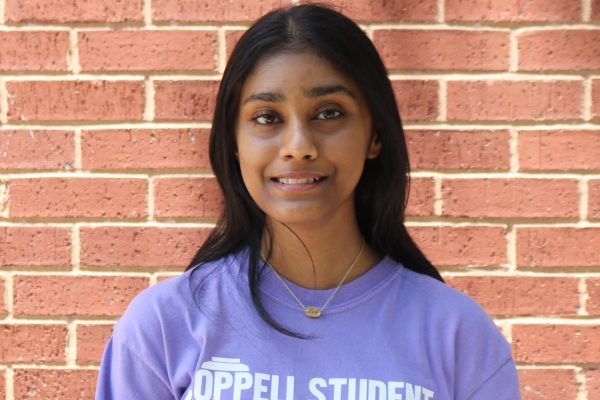In a life adorned with stamps from across the globe — Germany, Italy, Switzerland, Oman, just to name a few — sophomore Maria Saybha’s way to Coppell High School wasn’t the typical route through Parkway Boulevard, and down Cowboys Drive; it was a journey that started in a flee from conflict of war-torn Syria and through a maze of countries before she finally found a place to call home.
Each stamp on her passport marks not just a new destination she gets to cross off a bucket list, but another step she took in her quest for stability in a world of uncertainty and fear.
When conflict in Syria escalated, Saybha’s family faced an agonizing choice: stay and risk their lives, or leave behind everything they knew to seek safety. With the situation growing increasingly dire, they made the formidable choice to flee the country, leaving behind their home, their community and their roots.
Constantly on the move, Saybha’s childhood was consumed by relocating and finding temporary homes. Her family knocked on doors of 14 different countries across Europe and Asia, with hopes of seeking a permanent refuge, but were often met with rejection.
It wasn’t until 2022, at the age of 14, that Saybha finally obtained her U.S. citizenship, a milestone that marked a significant turning point in her family’s tumultuous yet courageous journey.
“Leaving behind everything multiple times was really difficult. A lot of the countries we went to didn’t let us apply for citizenship, so we had to keep moving around,” Saybha said. “Obtaining U.S. citizenship was a significant milestone for me. Personally, it meant security, stability, and a sense of belonging to me and my family.”
Having been denied citizenship time and time again in various countries, Saybha’s family found solace in the diversity and acceptance they encountered in the United States. However, adjusting to life in the United States hasn’t been without its challenges, having to navigate cultural differences and overcome dialect barriers, all while settling into a new environment. Despite these obstacles, Saybha has held on to her roots, remaining connected to her Syrian heritage, even as she learns to embrace the opportunities and experiences that come with American culture.
“America has a lot of diversity, not just with the different people but I think geographically as well,” Saybha said. “I saw similarities between my past homes and everywhere I’ve been to in America, which was really cool because it was like a sense of comfort and familiarity, making it easier to adjust and feel at home.”
This balance between holding on to her past and exploring new possibilities has been a constant in her journey. For Saybha, cultural identity is both a source of strength and a bridge between her past and present. Despite the myriad of cultures she’s been exposed to, she remains steadfast in honoring her Middle Eastern culture all while embracing the new opportunities American life has afforded to her.
“Staying connected to my Arab heritage and community while living in the United States is important to me,” Saybha said. “Being in a new country doesn’t mean abandoning my roots. It’s about finding ways to keep my culture alive in everyday moments, like the way I cook, the music I listen to, or even how I speak with my family.”
In her view, connecting to her Middle Eastern heritage has not only helped her navigate the challenges of immigration but also contributes a unique perspective to her new community.
“When I share my culture with others, it opens doors to conversations and connections that might not happen otherwise,” Saybha said. “It’s not just about preserving traditions; it’s about building new relationships through mutual respect and understanding.”
Saybha’s dedication to staying true to her Middle Eastern culture has a ripple effect on those around her, inspiring others to embrace their own cultural identities while forging new connections. One such person is sophomore Jude Abu Rahma, close friend of Saybha who shares the same Arabic culture and has emigrated from the Middle East.
“Maria is really sweet, and she’s so confident in herself, which I really like,” Abu Rahma said. “Being around her makes me feel more confident about embracing my Arab culture. If she’s so proud of it, I feel like I can be too. It’s obviously hard knowing that you can’t go back to our childhood homes and live there, which is a tough thing to deal with. Maria doesn’t try to show it as much to people, but I know she struggles with that sometimes, and talks to the people she’s closest to about it, which made us get closer.”
Throughout her journey, education has been Saybha’s beacon of hope, as well as a motivator to pursue her dreams. Finally receiving a valid education empowered her to build a brighter future for herself and her family. This sense of empowerment fueled her passion for learning and drove her to strive for academic excellence.
Yet, Saybha’s journey extends beyond personal resilience and keeping ties to her culture; it fuels her passion for advocacy and inclusivity. Witnessing firsthand the impact of stringent immigration policies on families, Saybha has strong opinions on refugee rights and celebrates the diversity it brings to communities.
“Coming from a place where borders can literally determine your entire future, I know how crucial it is for refugees to be treated with dignity and given a fair chance,” Saybha said. “When people are forced to leave their homes, they’re not just statistics—they’re individuals with dreams, stories, and the ability to enrich the places they go. It’s not just about being welcomed; it’s about recognizing that refugees bring a unique perspective and valuable contributions to society. By granting them rights and opportunities, we all benefit from the diversity they bring.”
Her experience speaks to the power of resilience and the beauty of multiculturalism. When refugees are given a voice and a platform, they often use it to build bridges between cultures, share their unique stories and contribute to the social fabric in ways that benefit everyone.
This balance between holding on to her past and exploring new possibilities has been a constant in her journey. Saybha’s aspirations extend beyond the classroom, fueled by a desire to pursue higher education, embrace American traditions like joining a sorority and attending football games, all while staying true to her Syrian heritage.
As Saybha navigates the halls of Coppell High School, she embodies the spirit of resilience and cultural pride, an inspiration to embrace our differences and celebrate the richness they bring to our shared experiences. In Saybha’s story, we find not just a tale of survival, but a testament to the transformative power of embracing diversity and staying true to oneself in the face of adversity.
Saybha’s journey from Syria to Coppell High School is proof that life’s best travel plans sometimes come with a few unexpected detours, turning a rocky road into a highway of hope and opportunity.
Follow @deepika.kumar__ on Instagram and @CHSCampusNews on Twitter.




